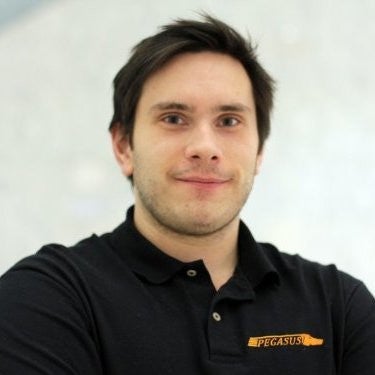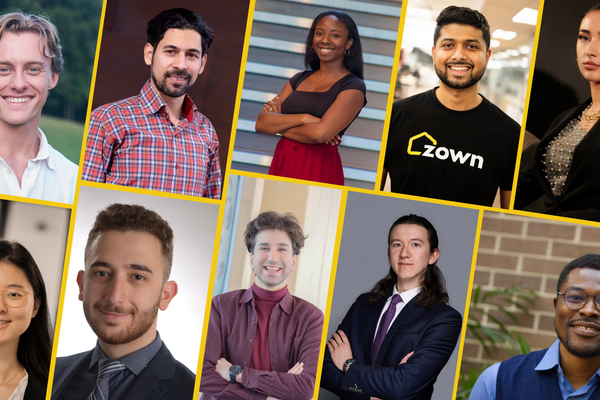
Turning drones into industrial workhorses
Founder Fuel: Student startup unlocks UAV potential with hybrid power boost

Founder Fuel: Student startup unlocks UAV potential with hybrid power boost
By Faculty of EngineeringThe entrepreneurship ecosystem at Waterloo Engineering nurtures promising ideas into thriving enterprises. In our weekly Founder Fuel series, we look at new ventures and how they have benefited from that crucial early support.
Unmanned aerial vehicles (UAVs) — commonly known as drones — have huge potential, according to Matt McRoberts (BASc ’15, mechanical engineering).
They’re easy to operate and cost-effective, and can venture into environments that aren’t safe for people. What holds them back is endurance. Currently, batteries can’t provide enough power to keep drones in the air for long periods of time or take heavy payloads.
McRoberts and his teammates set about solving that problem for their Capstone project. The result is a hybrid powertrain that enables drones to shift seamlessly between gasoline and batteries as needed, creating a viable solution in all kinds of industrial and commercial settings.
Actually launching their startup, Pegasus Aeronautics, was “pretty brutal,” McRoberts says, because “you see all your friends go off and take lucrative engineering jobs and you’re sitting there eating spam and rice.”
 Matt McRoberts, CEO and co-founder of Pegasus Aeronautics.
Matt McRoberts, CEO and co-founder of Pegasus Aeronautics.
But support and funding from Velocity and the Accelerator Centre’s JumpStart program, plus the mentorship of Waterloo Engineering faculty members, helped the new company navigate the unfamiliar business world and cultivate an entrepreneurial mindset.
“These are people who have done it before, who understand the trials and tribulations of starting a company,” says McRoberts. “That advice is worth its weight in gold.”
He’s proud of what they’ve accomplished so far. Pegasus is now selling the technology to billion-dollar UAV manufacturers for use around the world in applications from precision agricultural to navigating ice floes.
But they’re not resting on their laurels. Their team — which is comprised almost entirely of Waterloo grads — is focused today on building even better, more powerful systems.
Starting a business may be a big undertaking, McRoberts says, “but with the right people around you, you kind of feel undefeatable.”
This story first featured in WEAL 2022.

Read more
Redefining capstone learning by bringing students, faculty and community partners together to tackle real-world challenges

Read more
Here are the people and events behind some of this year’s most compelling Waterloo stories

Read more
From transforming solutions for homeownership to advancing health care interventions, Waterloo talent continues to disrupt industries and drive change
The University of Waterloo acknowledges that much of our work takes place on the traditional territory of the Neutral, Anishinaabeg, and Haudenosaunee peoples. Our main campus is situated on the Haldimand Tract, the land granted to the Six Nations that includes six miles on each side of the Grand River. Our active work toward reconciliation takes place across our campuses through research, learning, teaching, and community building, and is co-ordinated within the Office of Indigenous Relations.